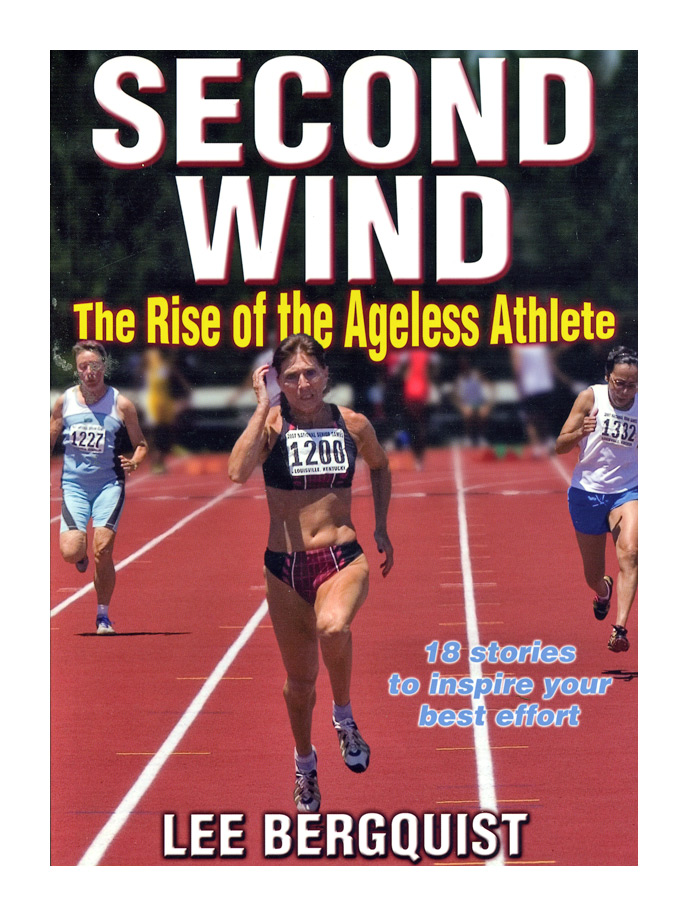Book review: ‘Second Wind: Rise of the Ageless Athlete’ is No. 1
The nitty gritty:
“Second Wind: The Rise of the Ageless Athlete,” published in 2009 by Human Kinetics; 206 pages, softcover; $17.95 cover price; 18×25.5 cm (7×10 inches)
Organization:
Three parts (Starting Out, Defying Age, The Long Haul) with 12 chapters.
Who this book is for:
The general reader unfamiliar with the amazing stories of boomer athletes and some beyond. Athletes will cherish it, too — for its frank depiction of older-adult sports maniacs.
What I liked:
Every athlete has a story — if only you patiently listen, ask the right questions and gain their confidence. Lee did this about a dozen times, and every one is a gem. The lady power lifter who kept getting stronger with age. The almost-Olympic skier who became a cycler. The swimmer who sold his auto dealership and became a Southern California lifeguard. The 70-year-old bodybuilder who realized after a lifetime of doping, “If you are going to be a lifetime trainer, steroids are absolutely the wrong thing to do. You’re just jerking yourself around.” Lee also weaves in sidebar material on the culture of masters sports.
What I didn’t like:
He could have profiled more track athletes! But the ones he served up — including M70 thrower Gerald Vaughn and all-universe multi-eventer Phil Raschker — are vividly drawn and revealed. (Phil Mulkey Sr., Phil’s one-time coach, told Lee that he still loved Phil. Heart-touching.) Lee devoted his last chapter to wise-beyond-words Payton Jordan, the masters sprint legend who died as the book was going to press. “His joy transcended the mechanical aspects of exercise,” Lee wrote of Payton, then in his late 80s. “He explained this to me in one of our early conversations, just as he was realizing he would probably never race again.” Heart-rending.
Sample from Chapter 6: “I want to be a winner”
By her own admission, Raschker is having memory problems. Though she seemed to have strong recall of most of the questions I asked, she told me, “I don’t remember stuff. I’ve always had memory problems, but as I age, it seems to get worse. At work, account numbers I have used for 30 years — I get a blank. It’s totally gone. It’s those kinds of things that totally scare me.” This could be a natural part of aging, or menopause, since scientists have been exploring the relationship between forgetfulness and a drop in estrogen levels. I’ve noticed occasional blips in my own memory in my 50s, and do do others around me. is it a problem? Or as an athlete who is acutely aware of her physical decline, is Raschker more attuned to the aging process than many of us?
Bottom line:
Collections of athlete profiles are common. But profiles of masters athletes tend to be fawning and positively saccharine. “Second Wind” does our niche justice, and it helps that the author is an accomplished reporter. I rank it with my favorite sports anthology of all time: Kenny Moore’s “Best Efforts.” Lee’s efforts are worth celebrating as well.






One Response
hi, I have this book and few others that I would be willing to give to someone who wants to read them. Let me know..
grossen76@hotmail.com
Leave a Reply